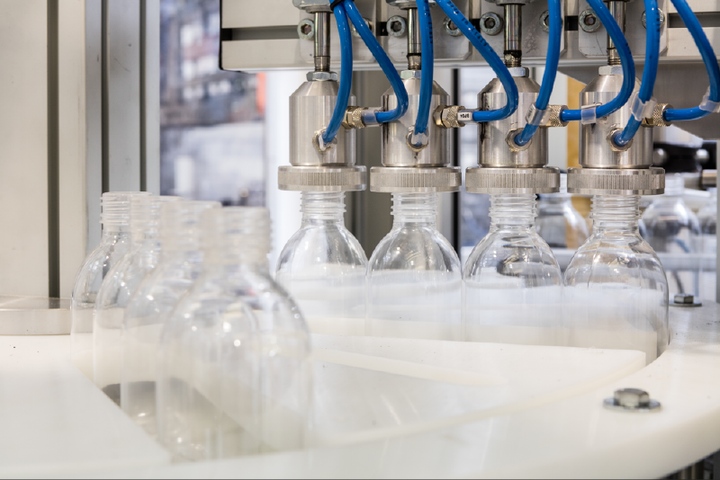UPM BIOCHEMICALS
Pharmaceutical bottle made from partially wood-based PET
— By Plasteurope.com correspondent —
UPM Biochemicals (Helsinki; www.upmbiochemicals.com) and speciality polyester resin maker Selenis (Portalegre, Portugal; www.selenis.com) are part of a partnership that will produce sustainable pharmaceutical packaging containing UPM’s BioPura, a renewable wood-based bio monoethylene glycol (BioMEG), and the Selcare partial BioPET resins from Selenis.
UPM Biochemicals (Helsinki; www.upmbiochemicals.com) and speciality polyester resin maker Selenis (Portalegre, Portugal; www.selenis.com) are part of a partnership that will produce sustainable pharmaceutical packaging containing UPM’s BioPura, a renewable wood-based bio monoethylene glycol (BioMEG), and the Selcare partial BioPET resins from Selenis.
 UPM, Selenis, and Bormioli Pharma introduce the world’s first pharmaceutical bottle partially made with wood-based plastics (Photo: Bormioli Pharma) |
The new pharmaceutical bottle will be offered by Italian pharmaceutical packaging producer Bormioli Pharma (Parma; www.bormiolipharma.com) starting Q1 2025.
Related: Bormioli Pharma acquired by German competitor Gerresheimer
Said to be the first pharmaceutical bottle partially made with wood-based PET, the bottle is produced with UPM’s wood-based, carbon-negative BioMEG, likely made from its patented technology for refining lignin, a biopolymer that forms in trees. The partial BioPET from Selenis is made from sustainably sourced materials.
The bottle is approved for use in accordance with European Pharmacopeia, Version 11.4, and Monograph 3.1.15, according to UPM. It can be processed and recycled in existing processes without any technical adaptations and is designed to offer a radically lower carbon footprint while delivering the same quality requirements as fossil-based virgin materials, the company added.
UPM said it is building an industrial-scale biorefinery in Leuna, Germany, that will convert woody biomass into high-value biochemicals, with hardwood being sourced from sustainably managed beechwood forests in the regions around Leuna.
The collaboration demonstrates that renewable wood-based biochemicals can deliver high quality with significant environmental benefits while proving that such solutions are scalable, said Michael Duetsch, vice-president of biochemicals at UPM.
28.11.2024 Plasteurope.com [256612-0]
Published on 28.11.2024
